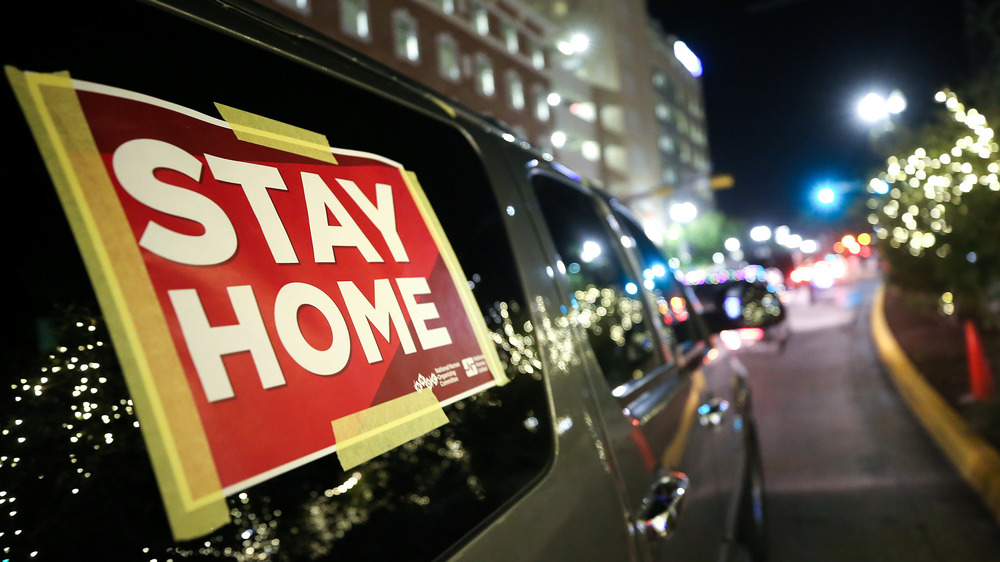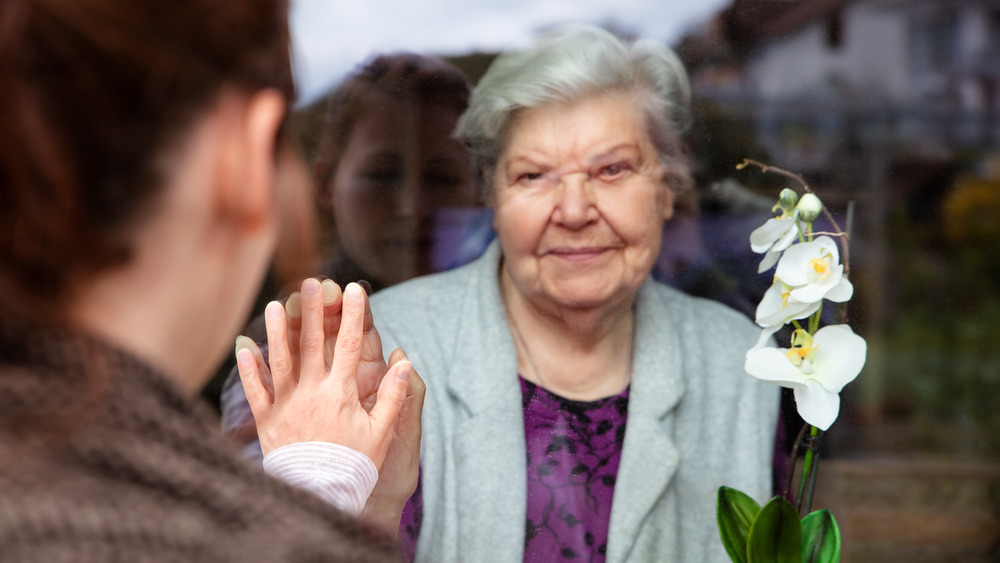What You Need To Know About CDC's Shortened Quarantine Guidelines
The U.S. Centers for Disease Control and Prevention on Wednesday presented two shorter "acceptable alternative quarantine periods" for people who may have been exposed to the coronavirus, hoping to reduce stress and economic hardship for those unable to quarantine for 14 days (via the CDC).
The agency still says a full 14-day quarantine period following potential exposure is ideal, said Dr. Henry Walke, who oversees the CDC's day-to-day management of the pandemic response. But Americans may stop quarantining sooner if they meet either of these conditions: after 10 days if they've experienced no symptoms, even if they have not received COVID-19 test results; or after seven days if they've experienced no symptoms and have a negative test result.
People should continue to monitor themselves for any symptoms for the full 14 days, even if they return to work or go out in public sooner, Walke said. He added that local health officials can adjust these guidelines according to conditions and needs in their jurisdictions.
According to Johns Hopkins University, which is tracking COVID-19 cases worldwide, the number of cases in the United States reached 14.1 million this week, with more than 276,000 deaths. Dr. Anthony Fauci, director of the National Institute of Allergy and Infectious Diseases, on Tuesday said that small gatherings and travel over Thanksgiving and the upcoming Christmas season put the nation at risk of a "surge upon a surge" (via MarketWatch).
Shortening quarantine by a few days could lessen economic and emotional hardships, the CDC says
The CDC arrived at the alternative shorter quarantine periods after analyzing new research and modeling data. There is a "small residual risk" that a person who leaves quarantine early could transmit the virus to someone else, said Dr. John Brooks, the agency's chief medical officer for the coronavirus response (via The New York Times).
However, officials hoped that the alternatives would improve compliance with safety measures while also acknowledging the difficulty of seclusion on a pandemic-weary public. "Reducing the length of quarantine may make it easier for people to take this critical public health action by reducing the economic hardship associated with a longer period, especially if they cannot work during that time," Walke said.
Similar to its warnings ahead of Thanksgiving, the agency recommended against people traveling over the winter holidays. Those who do decide to travel should get tested for the coronavirus one to three days before their trip and again three to five days after their return, even if traveling domestically. Travelers also should self-quarantine or at least keep nonessential activities to a minimum for seven to 10 days after they return home.


